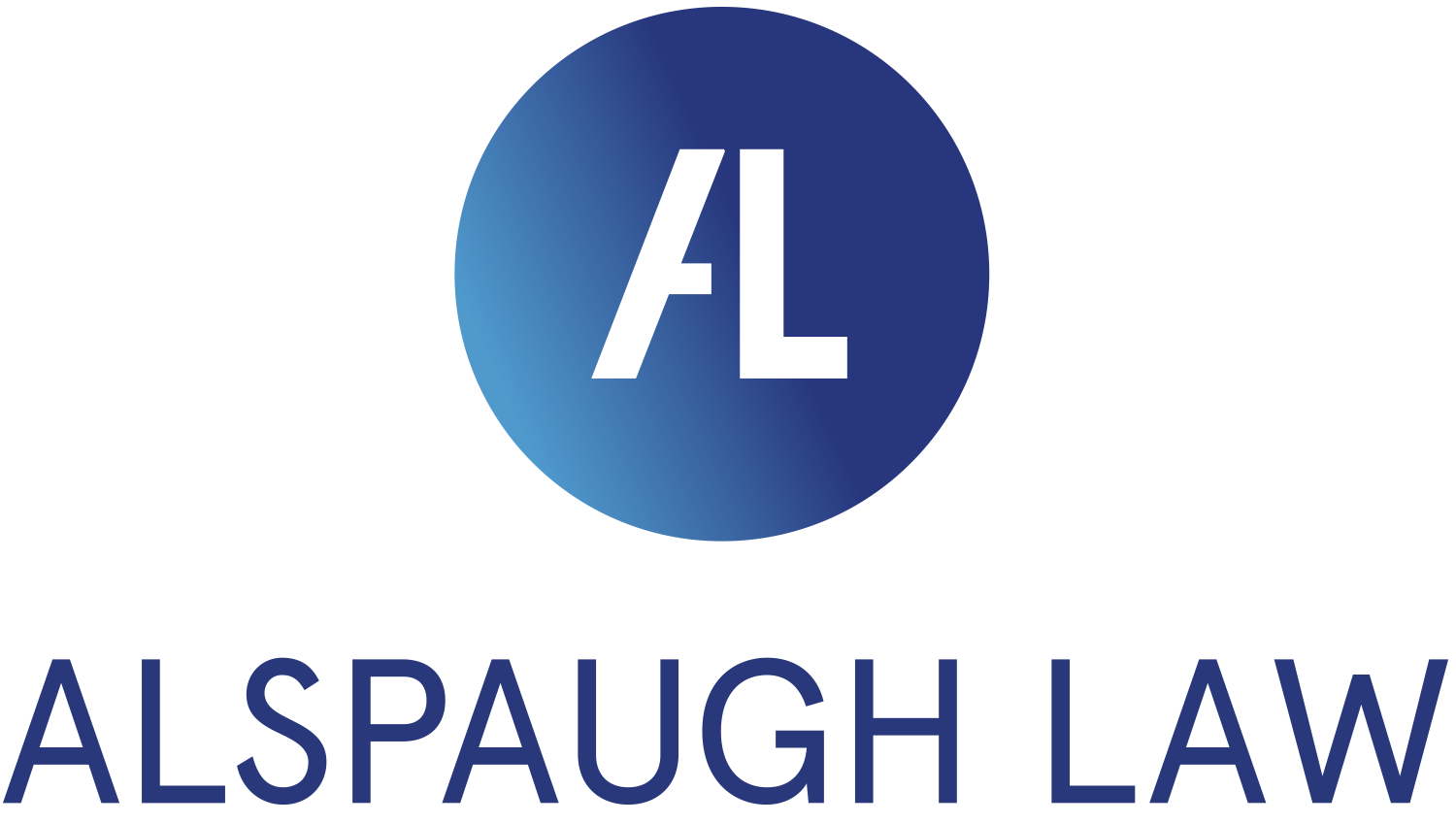FAQS
Alspaugh law
Frequently
asked Questions
Copyright FAQs
Copyright FAQs
Copyright is a form of protection for the authors of “original works of authorship” including literary, dramatic, musical, artistic, and other intellectual published and unpublished works.
Different types of “works of authorship”, include:
- Paintings
- Photographs
- Illustrations
- Musical compositions
- Sound recordings
- Computer programs
- Books
- Poems
- Blog posts
- Movies
- Architectural works
- Plays
- And so much more
A copyright protects the form of expression rather than the subject matter of the writing. For example, you can copyright a description of a machine, but this would only prevent others from copying your description. Your copyright would not prevent others from writing a description of their own or from making and using the machine. The U.S. Copyright Office, a department of the Library of Congress, oversees the registration process.
Everyone is a copyright owner. Once you create an original work, like taking a photograph, writing a poem or blog, or recording a new song, you are the author and the owner.
Companies, organizations, and people besides the creator can also be copyright owners. “Works made for hire” establishes that if you create something while at work, it is property of your employer. This doctrine also applies to certain independent contractor relationships and for certain types of commissioned works.
Copyright ownership can also arise from contracts like assignments or transfers like wills and bequests
.
The 1976 Copyright Act allows an owner of copyright the exclusive right to:
- Reproduce the copyrighted work
- Prepare derivative works
- Distribute copies or phonorecords of the copyrighted work
- Perform or display the copyrighted work publicly
The length of copyright protection depends on the creation date.
- Works created on or after January 1, 1978, have a copyright term of the author’s life, plus 70 years after death.
- Joint work terms last for 70 years after the last surviving author’s death.
- Made for hire and anonymous or pseudonymous works terms last 95 years from publication or 120 years from creation, whichever is shorter.
- Works created before 1978 have a different timeframe.
Learn more about copyright duration in our Duration of Copyrights Circular.
You must submit an application form, register a nonreturnable copy or copies with the U.S. Copyright Office, and pay a fee. Your fee is calculated by the method you apply and the type of work you are registering.
Generally, you should prepare a separate application, filing fee, and deposit for each work you submit. In certain situations, you can register multiple works with one application.
File an online registration:
- Literary works
- Visual arts works
- Performing arts works, including motion pictures
- Sound recordings
- Single & group serial issues
Benefits of online registration include:
- Faster processing times
- Status tracking
- Online payment
- Option to upload categories of works or to send a physical copy of a work
The Copyright Office charges a $125 fee to record documents about a copyright, such as a transfer of copyright, a will, a license, or a notice of termination. The fee covers documents of any length but not more than one work and has a title and/or a registration number.
alspaugh law
Free Consultation
Our Offices
Irvine
5151 California Ave #100
Irvine, CA 92617
(888) 868-2939a
Aliso Viejo
26895 Aliso Creek Rd Ste #223
Aliso Viejo, CA 92656
(888) 868-2939
